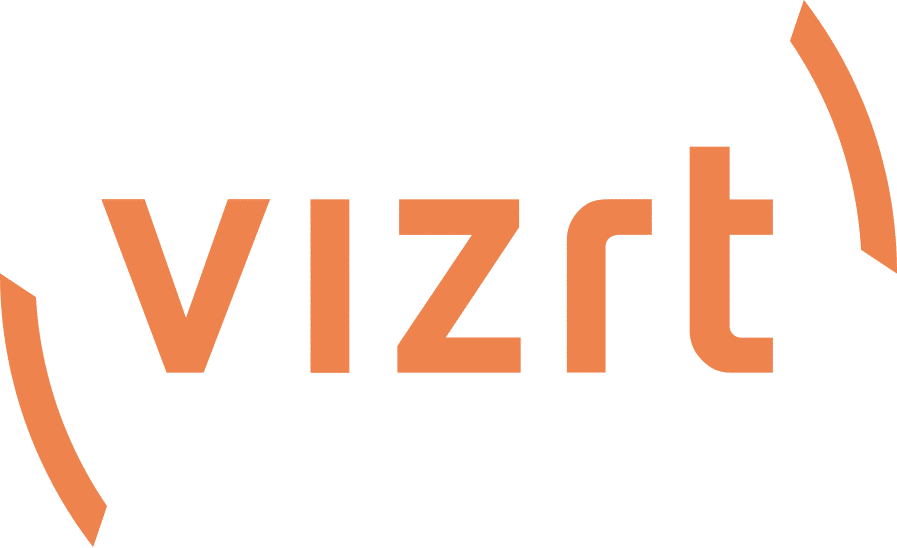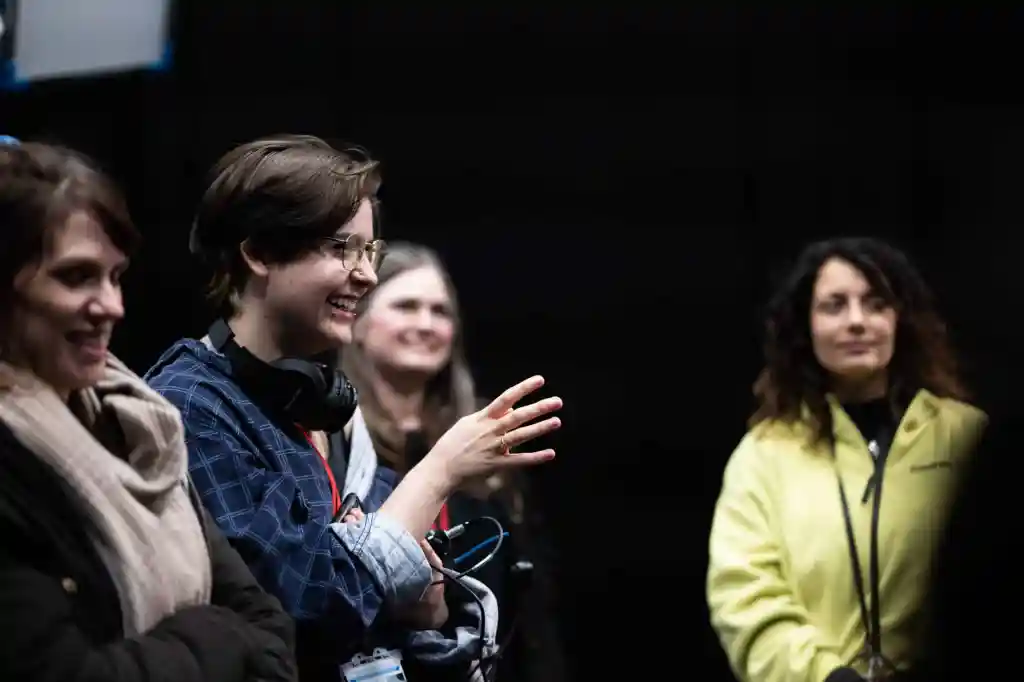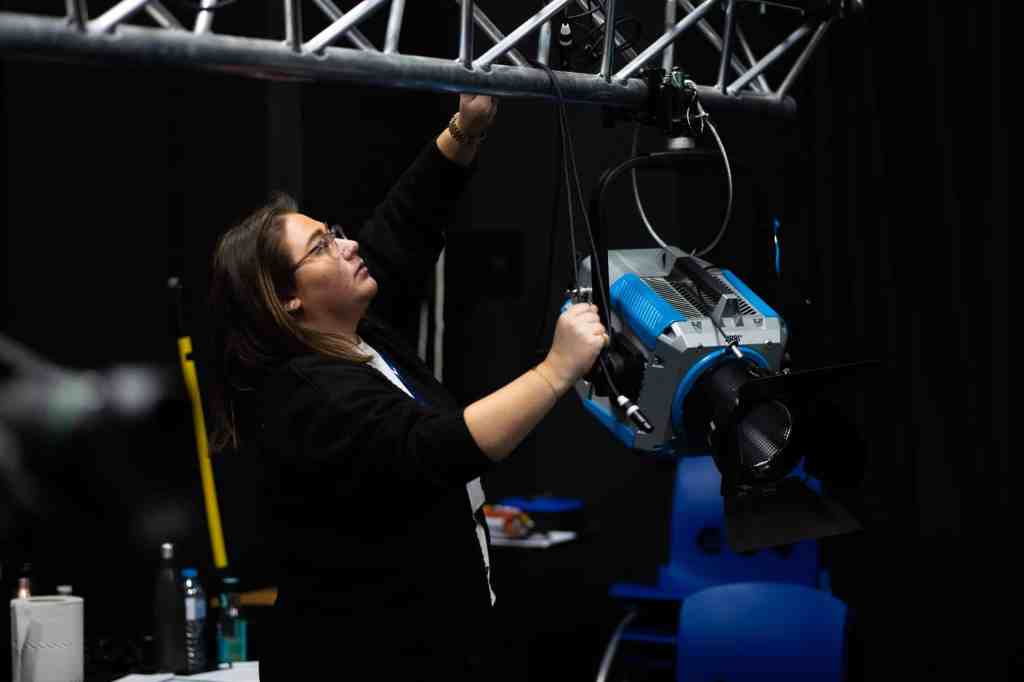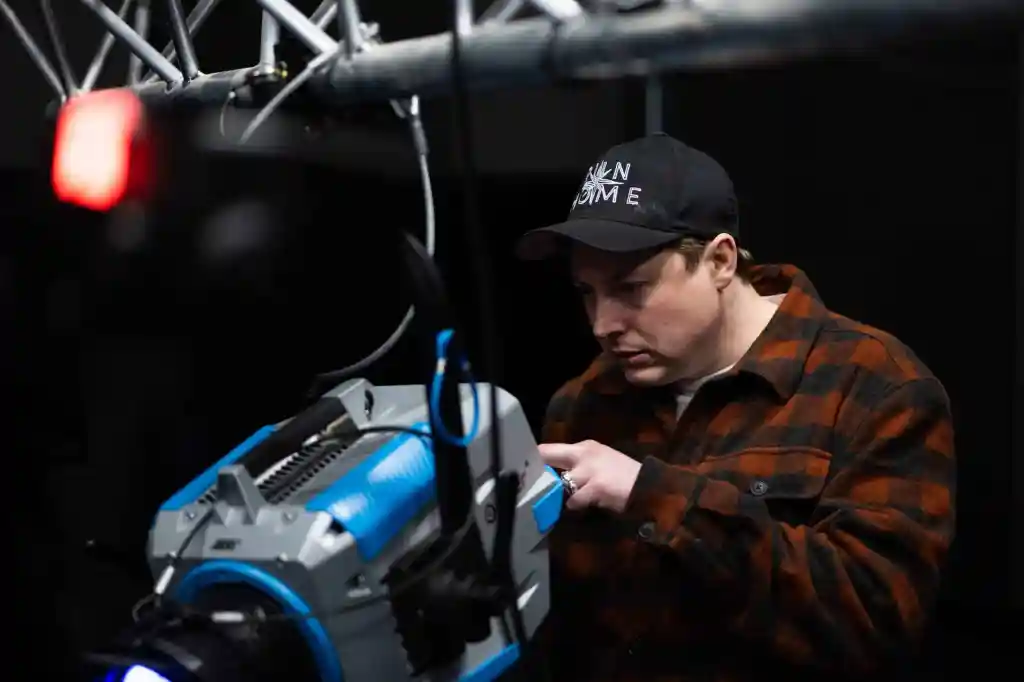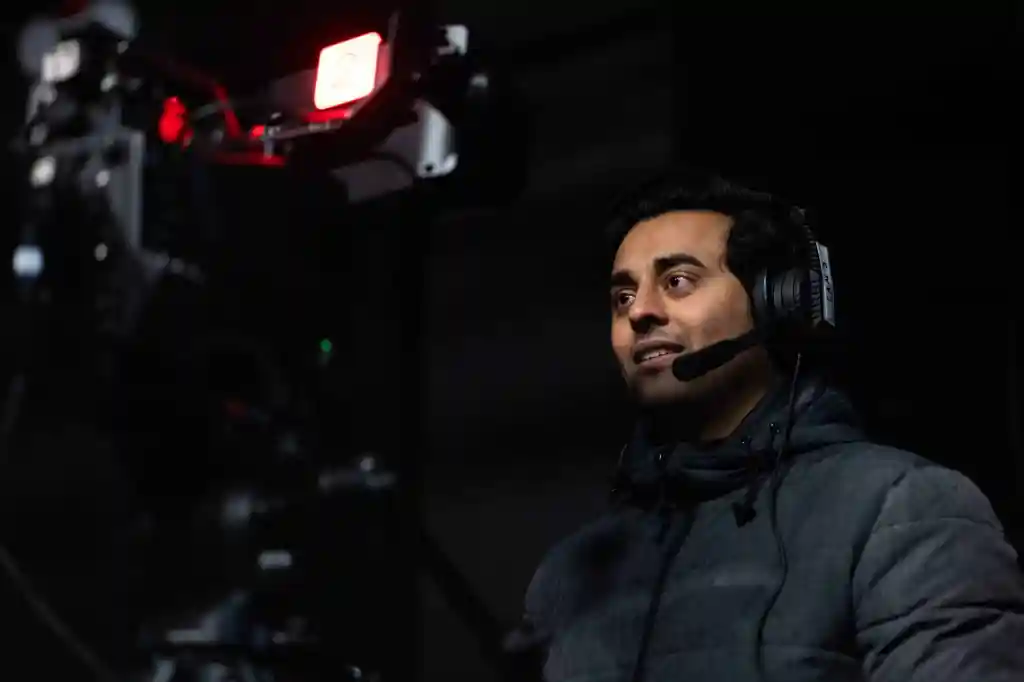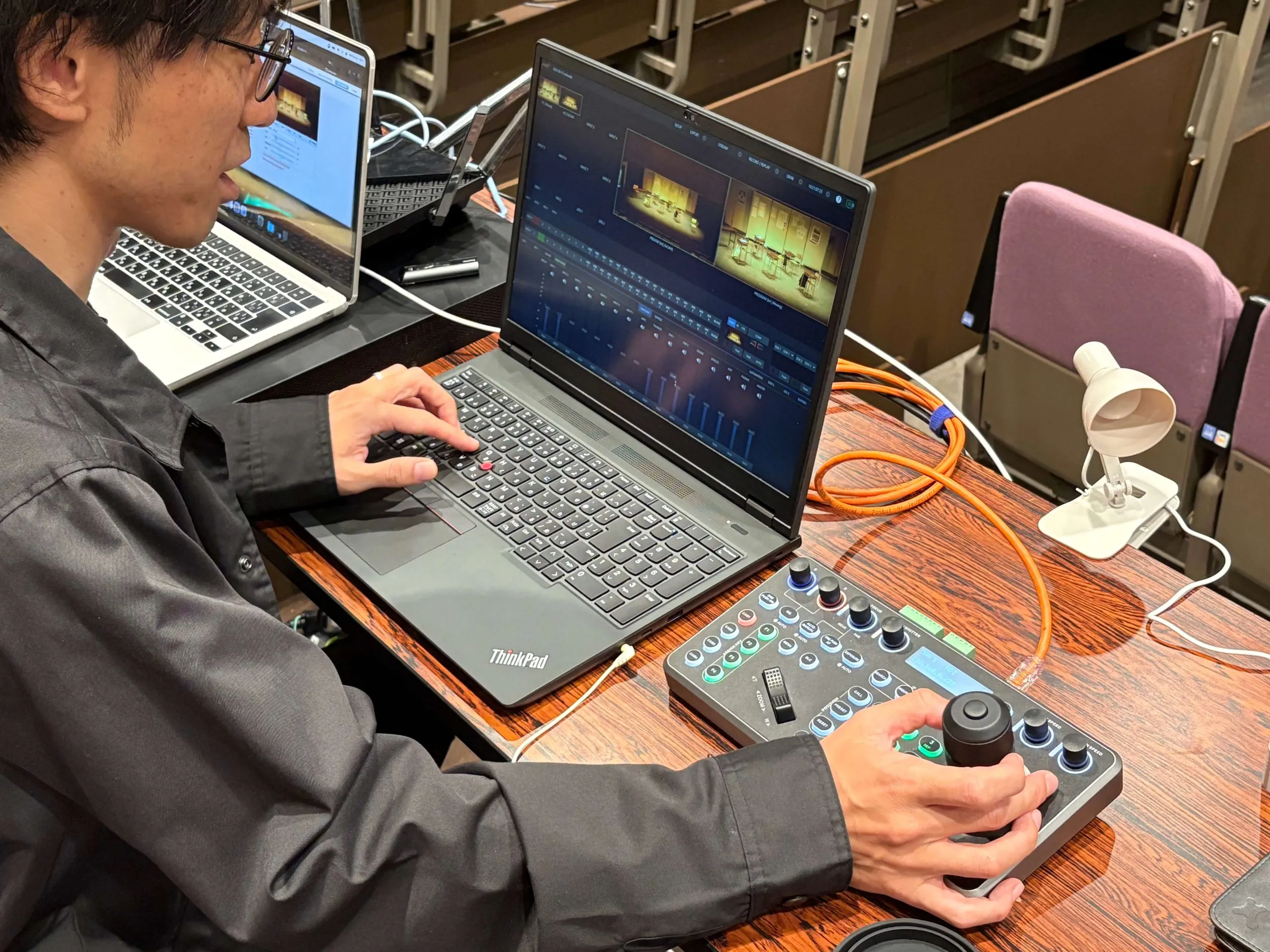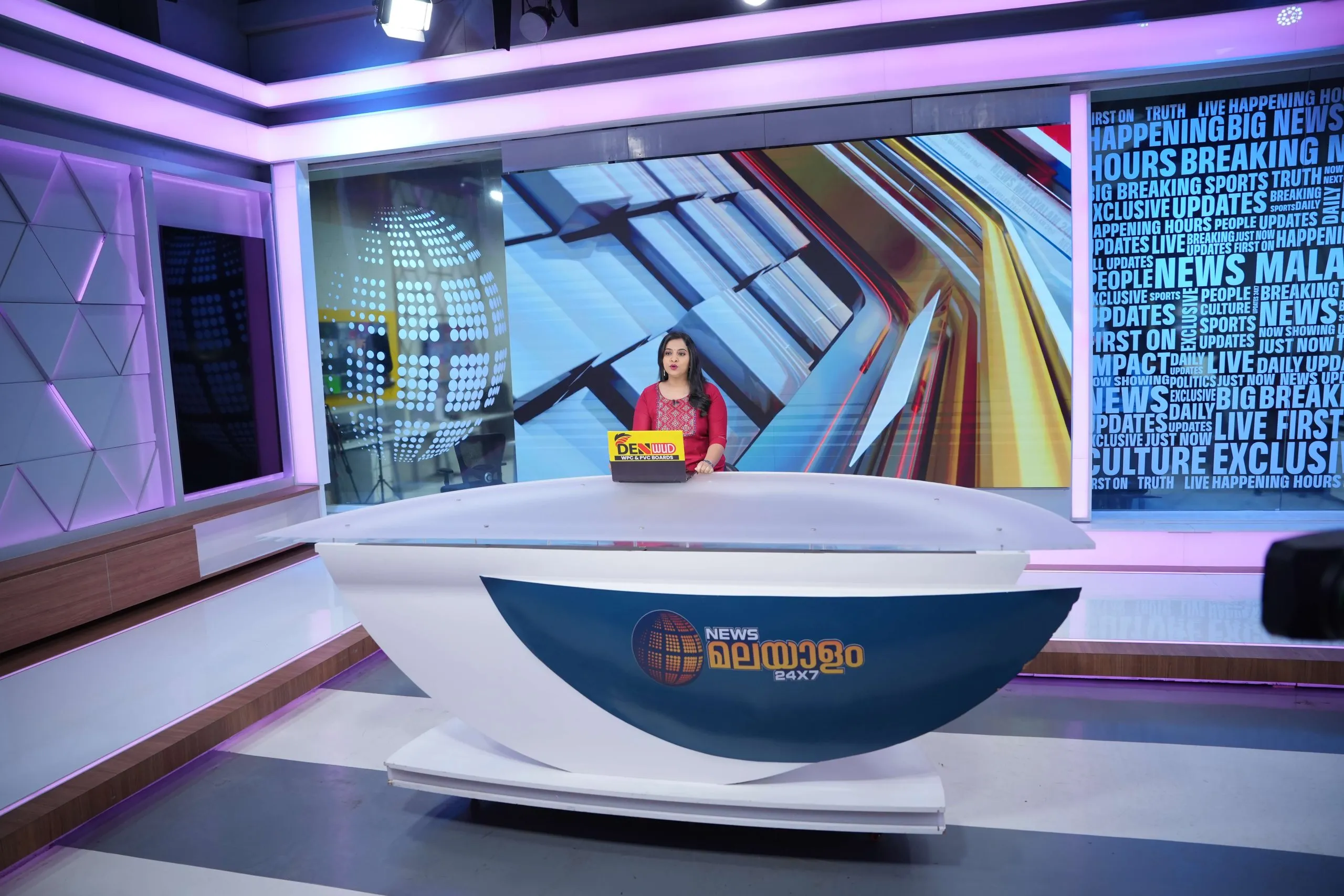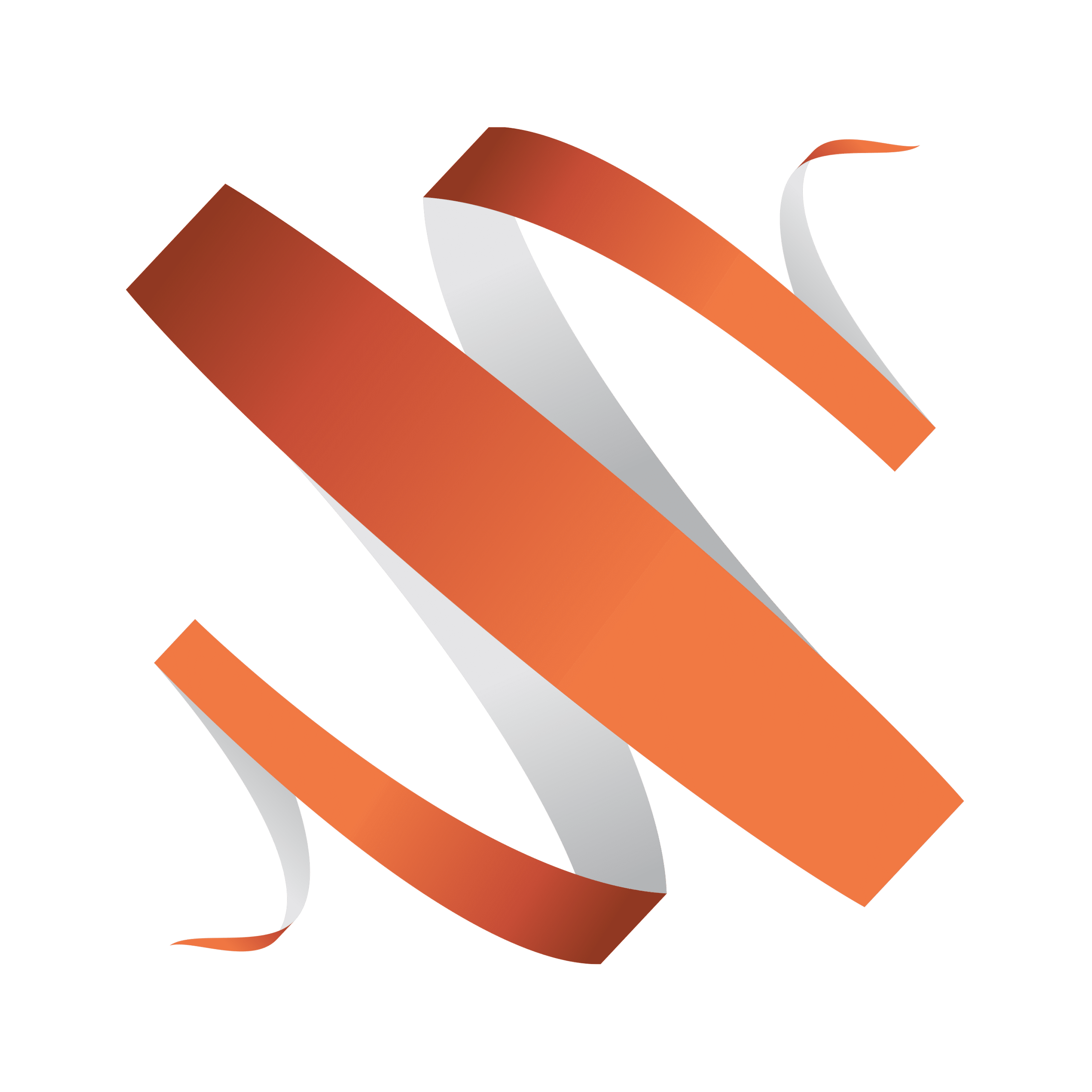Stratford-upon-Avon College’s Campus, located close to the center of historic Warwickshire town, has always moved with the times when it comes to new technologies for its acclaimed creative and vocational further educational (FE) courses. For its latest refurbishment and expansion project, the college enlisted locally based media systems integrator Digital Garage to create new TV and radio education spaces, with all the associated infrastructure and equipment.
Acoustic and structural design challenges led to some of the initial ideas being reworked and/or alternative spaces identified. Eager to ensure that students would feel comfortable with both legacy and next-generation workflows, the Digital Garage team fashioned a comprehensive audio, video and data infrastructure that encompasses IP-based audio and SDI- and IP-based video.
Having worked effectively with NDI® video connectivity and Dante audio transportation technologies on previous projects, Digital Garage felt the combination would be ideal for Stratford-upon-Avon College’s Campus new creative facilities.
“Consequently, we collaborated with the college IT team to ensure we understood the existing network topology, then developed ways in which the network could be adapted and segmented to support NDI and Dante for video and audio transfer,” explains Mike Whelan, Managing Director, Digital Garage.
Making the budget go as far as possible is a recurring theme of projects in the educational sector, and this was no exception. In some instances, it was possible to re-employ existing equipment in the new spaces, but this wasn’t on the cards for the broadcast production technology. The previous system had been showing its age for a while and was no longer capable of accommodating the rigorous requirements of today’s media education – prompting the decision to invest in a TriCaster TC1 Live Production System from Vizrt.
THE FULL RANGE OF TV PRODUCTION
“Vizrt’s TriCaster TC1 has a really powerful spec that supports teaching of the whole gamut of TV production,” says Whelan, Digital Garage, neatly summarizing the appeal of a system that has found favor in broadcast production and training environments around the world.
As previously hinted, the TC1’s ability to work with both legacy and next-generation formats was a critical factor in its selection for Stratford. As well as enabling production in SDI (3G-SDI and HD-SDI), the system can also support the college’s IP needs thanks to native NDI integration and a licensed Dante Virtual Soundcard. Indeed, with a grand total of 36 source channels, including 16 external inputs, the TC1 makes it possible to create compelling content and course work from all manner of sources.
Subsequent to the initial project phase, a second TriCaster system – the hyper-compact and versatile TriCaster Mini 4K – was acquired for the college’s theatre studio, and the full scope of creative opportunities now available to students and staff became even clearer.
“Having the TriCaster TC1 means it’s no trouble to take on large-scale projects with high production values and lots of people operating, on the other hand, you can also greatly simplify things and reduce the number of people operating for less complex projects – or simply rock up with the TriCaster Mini 4K for single-operator productions.” notes Whelan, Digital Garage
The resulting NDI connectivity and routing between the various spaces also means that it’s possible to adopt a more flexible, “mix-and-match”-style production ethos. “For example, you could use one system as the sub-gallery and the other to tie the entire facility together; there are plenty of different ways you can approach it”, adds Whelan.
BOOTCAMPS AND THE BARD
Even a brief look at some of the projects accomplished with the new facilities confirms their impressive impact. Underlining the capabilities of the new TV studio, students recently worked with Stratford-upon-Avon’s legendary Royal Shakespeare Company (RSC) to stream a production of Richard III into hundreds of classrooms across the UK, employing the in-house facilities to produce live ‘wrap around’ segments including an introduction, discussions and a live Q&A.
Sophie Jolly, Lecturer and Bootcamp Manager at Stratford-upon-Avon College, adds, that whilst the RSC had already captured the play from the RSC Swan theatre, the team at the College ingested it to broadcast a magazine style show with the cast/ crew live from the studio that cutaway to the pre-recorded performance.
Meanwhile, as part of its efforts to address skills gaps in the creative industries, the college’s media facilities frequently host industry bootcamps that deliver training for specific roles. In February 2024, for example, a Creative Venue Technician Bootcamp saw the college partner with several prominent live venues in the region, including the Birmingham Hippodrome, Warwick Arts Centre and the RSC.
Referring to the recent award recognition for a film project shot in the new studio during one of the Bootcamps, Sophie remarked that the production of high-level, award-winning content would not have been possible without the new facilities, highlighting the TriCaster as a vital part of the setup. She noted that the feedback about the TC1 and the TriCaster Mini 4K has been overwhelmingly positive, with students finding it easy to grasp the technology and achieve good results quickly.
Vizrt technology is also perfectly complementary to the college’s desire for its courses and equipment to be future-proofed and accessible to all.
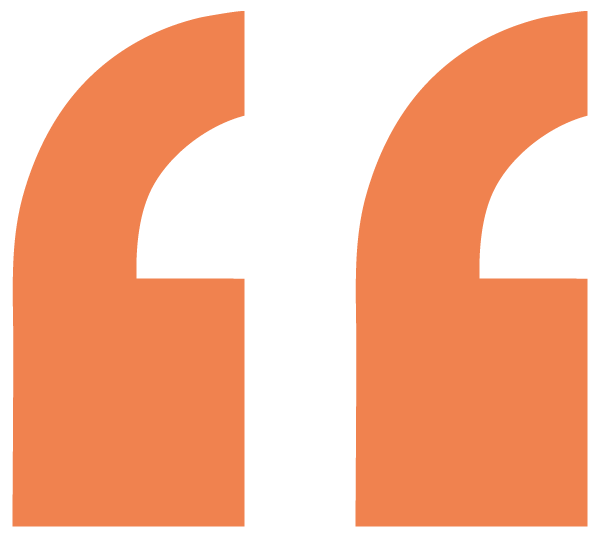
Digital Garage continues to support the College, reflecting its commitment to education. Whelan highlighted the competitiveness of higher education (HE) and further education (FE), stressing the need to focus on learning outcomes and provide technology that prepares students for their future careers.
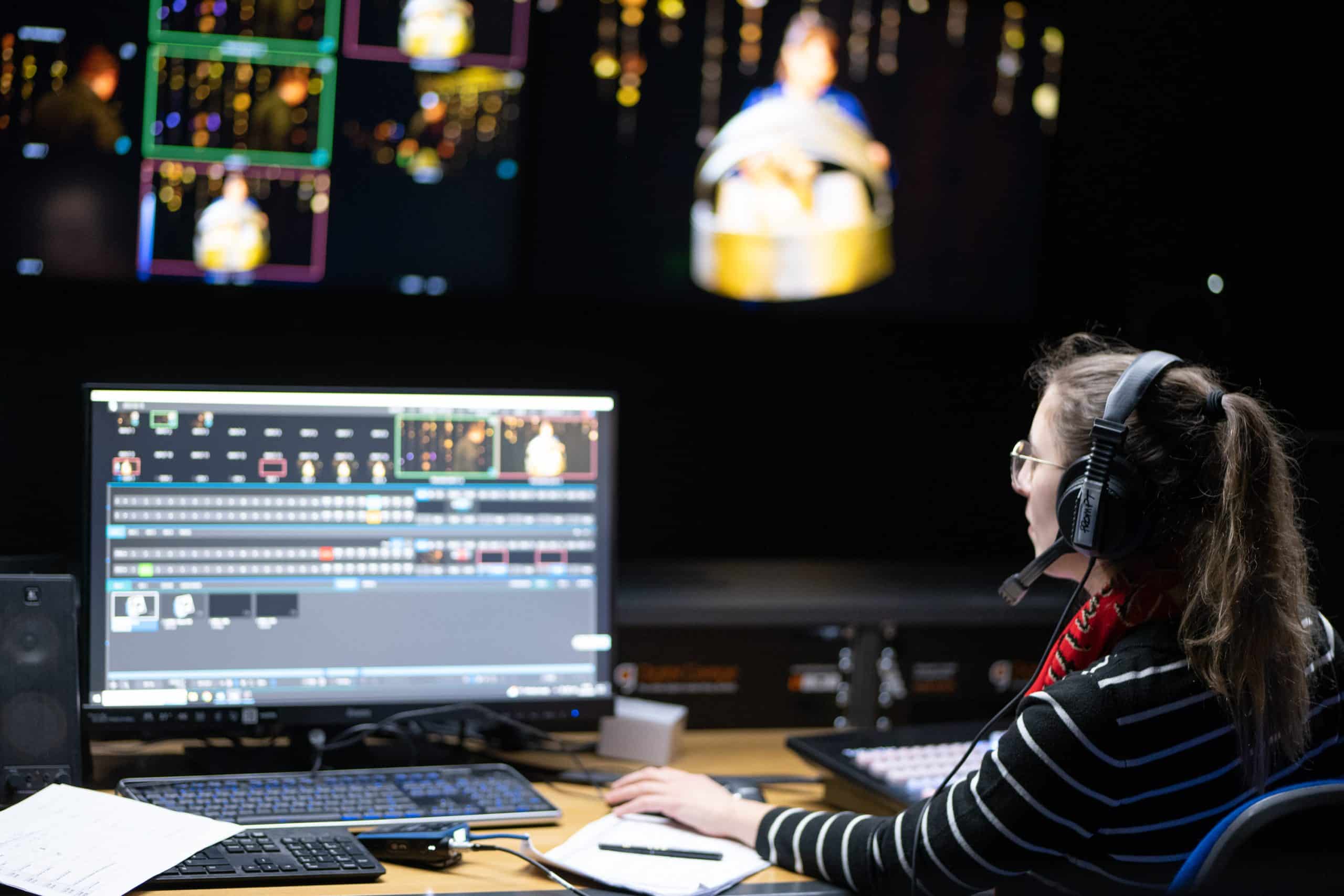

About Digital Garage
Digital Garage are a specialist broadcast, post-production, audio, and creative media solutions company, serving clients across the UK and Ireland from their base in Banbury, Oxfordshire. They provide progressive, creative and innovative solutions to the challenges faced by educational facilities and media producers of all sizes – from independent production companies to major broadcast networks. They are experts in system and workflow design, studio builds, consulting and technical support services.

